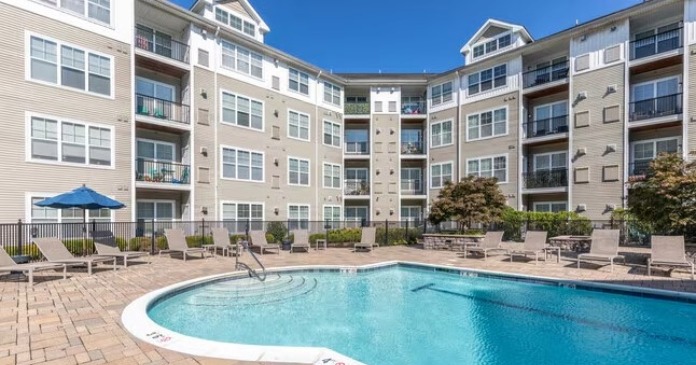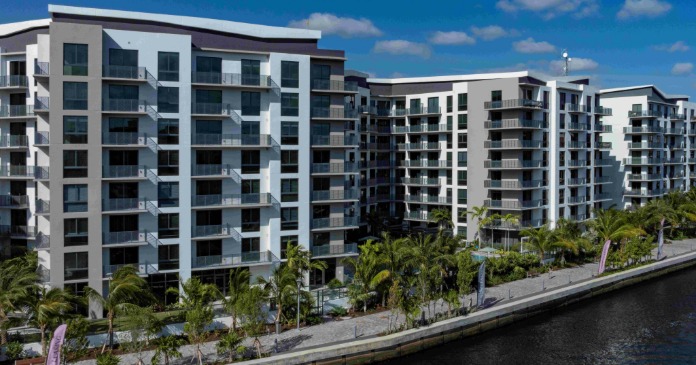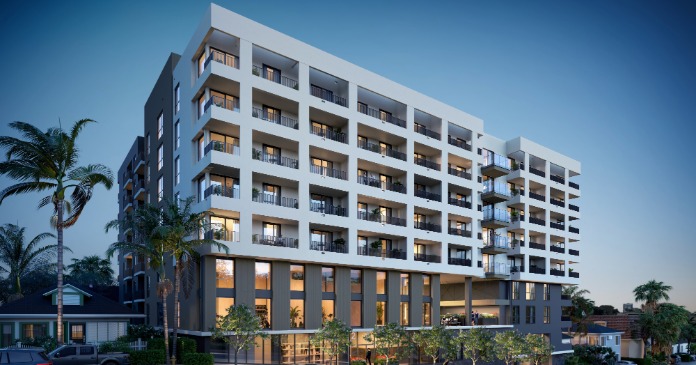MHP According to MHP’s rankings, in 2005 AvalonBay (NYSE: AVB) posted the highest one-year return of any apartment REIT. Then, in March your company issued the highest dividend in its history as a REIT. What factors contributed to such strong performance?
Blair It’s really been a continuation of great performance for the past ten years. If you look at our returns for 1, 3, 5 and 10-year benchmarks, you’ll see consistently high returns. We led all apartment REITs in one-year and three-year returns at 54.07 and 46.22 respectively and our five-year and ten-year returns were also in the top tier. Much of this success has been a result of our focused strategy on high barrier, supply-constrained markets marked by high costs and lower competition. Our portfolio is concentrated mostly in coastal markets — Boston, Seattle, New York, California, the Pacific Northwest, the Mid-Atlantic and Northeast — with new communities under construction in Los Angeles, New York City, Rockville, Maryland, and Bedford, Massachusetts.
Another factor is the high quality of our apartment assets, two-thirds of which we built ourselves. The average age of our properties is around eight years. We’re a very active developer, one of the most aggressive of the apartment REITs. In the past seven years, we’ve invested nearly $2.5 billion in development, creating an estimated $1.7 billion in value, roughly one-third of our NAV (Net Asset Value) growth since 1999. We’ve increased our development activity to $4 billion with $1 billion currently under construction and an additional $3 billion of development rights in the entitlement stage.
Market selection, we believe, is critical. We focus on A-class properties in upscale regions and support them with an intensive customer service program aimed at maintaining the quality of our assets and ensuring the best living experience for our residents. Customer service is a primary element of our mission statement and we place strong emphasis on it company-wide, from the top through the ranks. Compensation is tied to service, and awarded to any of our 7,200 associates who excel in this area. We spend a lot of time at AvalonBay talking about customer service; how to improve it, what our residents need and want. We use focus groups and gather feedback from residents all the time. The main
goal is to be flexible and to change when needed.
MHP What is the outlook for 2006 for AVB and the industry? Beyond 2006?
Blair The outlook for AvalonBay and the industry is very positive. Fundamentals look their strongest since the late 1990s. 2005 was a successful year for us with revenue and NOI growth from communities accelerated throughout the year. We increased our development activity, ending the year with $4 billion under construction and in planning, and we achieved the largest increase in FFO per share since 2000. Looking ahead, we are well positioned for continued earnings growth at levels that support additional dividend growth. Recognizing this, our Board voted to increase the dividend 9.8% for the first quarter of 2006.
MHP How do market fundamentals look in terms of development opportunities, interest rates, job growth, and construction costs? Can the present economy sustain growth in the apartment market?
Blair Sustained job growth with an increase of 2% nationally, limited new supply and declining home affordability as mortgage rates climbed all contributed to strengthening fundamentals in 2005. Third-party economic forecasts suggest job growth in the company’s markets of 1.7%, supporting additional apartment rental demand in 2006. We expect this job growth, combined with expected low levels of new apartment supply, to result in favorable apartment market fundamentals in 2006. Projected Earnings Per Share (EPS) is expected to be within a range of $3.46 to $3.66 for the full year 2006, and is impacted by management’s expectation for lower gains on asset sales as a result of fewer dispositions.
The declining home buying market, due to high prices and mortgage rates, and the strength of the condo market will help keep supply of new apartments in check. Approximately 80,000 units were taken off the market by apartment properties being converted to condos. While some voice concern about the sustainability of the condo market, we see that concern cooling and consider condos market by market.
MHP AvalonBay has been an aggressive seller of apartment properties. Is this part of your strategy? How does your strategy differ from AIMCO, Equity Residential and Archstone-Smith who were the leading net sellers of apartments?
Blair We are an active capital recycler selling assets when the timing is right and reinvesting the proceeds into our development pipeline. In 2005, we had $382.7 million in asset sales. Our dispositions included seven apartment communities, a regional office building and three land parcels. We’ve created significant value through these sales efforts with a gain of $185 million — nearly two dollars back for every one spent. The unleveraged return achieved on those sales has been 18% over an eight-year holding period. Other REITs used the sale of assets to fund operations and acquisitions or to improve yields, while we have primarily utilized the sales of our properties to expand our development pipeline. I believe we’ve sufficiently demonstrated a winning strategy to our investors.
MHP What makes AVB unique?
Blair The quality of our communities coupled with the excellence in customer service. We have great teams, both at the corporate and local levels. I learned a long time ago from mentors like Ron Terwilliger of Trammell Crow and my predecessor at AvalonBay, Richard Michaux, that the apartment business is a local business. That’s where the game is won or lost, where you either meet your residents’ needs or lose them to competition.
MHP What role does technology play at AVB? To what extent have you integrated web-based marketing into your program? What marketing and operational approaches are used at AVB?
Blair We embrace technological innovation early as a means of improving our operational efficiency and marketing programs. On the operations side, technology has been instrumental in providing timely, relevant information enabling us to make better decisions and provide for greater accountability.
In terms of marketing, the Internet and our web site have become one of the largest sources of prospects and key drivers of our marketing efforts. We continually look to enhance our web site and search engine technology to drive traffic. We’ve also had tremendous success with our user-friendly web portals serving residents.
MHP Mergers and acquisitions activity is on the rise in the apartment market. Is AVB planning to pursue acquisitions more aggressively in response? Do you see more consolidation coming?
Blair There’s definitely been an increase in M&A activity as a result of the tremendous influx of capital into the apartment market. You see more institutional players with pension funds putting capital into the market. I think it’s a natural evolution of a capital-intensive business and clearly a sign that real estate has won investor confidence.
We haven’t been overly concerned by the uptick in consolidation — we tend to focus on ourselves, on sticking to the game plan, creating value for our investors and not being distracted by what others do.
We like to think our biggest competition comes from ourselves. How can we do better? Which markets are the best for our style of communities? Which markets will have the best job growth or economic potential? Those are our real concerns.
MHP For some companies, the CEO and company culture are inseparable. How much of AVB reflects your own personal and business philosophies?
Blair I hope I’ve made a difference. AvalonBay has a rich legacy of great leadership. Dick Michaux, who was president from the company’s inception, is an industry icon and responsible for the early direction of AvalonBay. Management at AVB is a team effort and we’re fortunate to have senior executives such as President Tim Naughton and CFO Tom Sargeant who have worked together for over a decade and in the industry for 15 years or more. All three of us learned the ropes at Trammell Crow Residential under Ron Terwilliger. There’s a lot of talent at AvalonBay, no one person is responsible for the company’s success. It’s really an incredible team effort across the board.
MHP You began your career with Trammell Crow which spun-off Avalon in 1993. How did your Trammell Crow experience affect your career?
Blair Trammell Crow Residential is an excellent company and I learned a lot while I was there. You take the best of those experiences and use them. One Trammell Crow strength that we consciously emulate at AVB is to instill and maintain an entrepreneurial spirit. I feel it is essential to operate real estate as a local business, highly dependent on local talent. What is truly unique about us as a company is that we are both highly decentralized and we have the benefits of being a large public company. The concept of empowering the people at the local level while leveraging the managerial strength of the central office comes from a heritage of Trammell Crow Residential’s approach. We’ve taken that concept and made it a key component of our own corporate culture.
MHP Who has had the biggest influence on you?
Blair Professionally, I would have to say Dick Michaux and Ron Terwilliger.
MHP What are your core values and beliefs?
Blair Not all great ideas come from headquarters. I believe knowing and understanding the communities you work in has tremendous value both professionally, and personally. And I believe that you only get out of something what you put in.
I’m convinced there is a benefit to setting core values for your company early on. At the heart of our core values are integrity and a caring spirit.
MHP As one of the industry’s leading executives and an active member in key associations (ULI, NMHC), you’ve witnessed the industry’s evolution over the past decade. What’s changed. What hasn’t?
Blair There’s definitely more professionalism within the industry and I think REITs had a lot to do with that. The emergence of apartment REITs fundamentally changed the apartment business. Going public has meant the need to communicate better with investors and to be more accountable. This has led to an industry-wide benefit of better information on property performance and improved technology, and systems to help make better decisions. I think with regard to technology and environmental concerns, we’re building better products. We believe in long-term ownership and the design and construction of buildings with quality components that can stand the test of time.
As a consequence of better information and technology, the industry is working more efficiently. The past decade has been exciting and I’ve been glad to be a part of it and see the industry changing for the better. It’s a very different industry compared to the 1980s.
MHP What’s next for you? For AvalonBay?
Blair We try not to be static. Our strategy evolves along a fairly well-defined path. I don’t see any radical changes. We’re committed to building a more diverse portfolio that is consistent with our high-barrier and current property strategy. I’d rather under-promise and over perform than make promises I can’t keep. A key characteristic of AvalonBay’s performance is that our whole company revolves around execution, doing what you say you will. I hold myself accountable to investors, residents, and employees. I’d rather have a poor strategy that was well executed, than a good strategy that was poorly executed — even a poor strategy that is well executed provides value.
The key for myself, as well as the company, is not to become complacent or rest on past achievements. You need to cultivate momentum and ingrain it in the corporate culture. What are we going to do tomorrow? How are we going to get there? When are we going to get there?
Those are the questions that drive me personally and that I try to communicate to those I work with.















